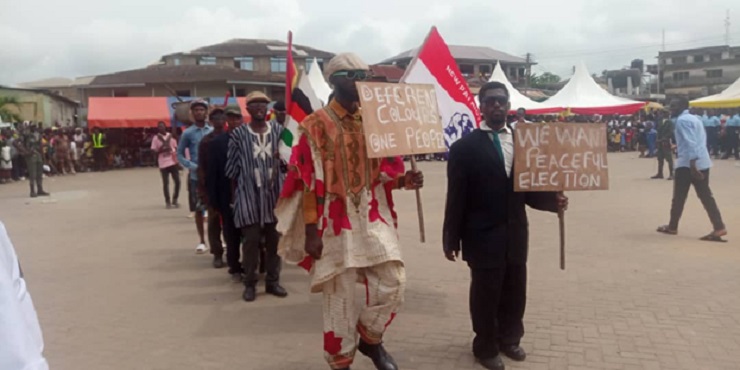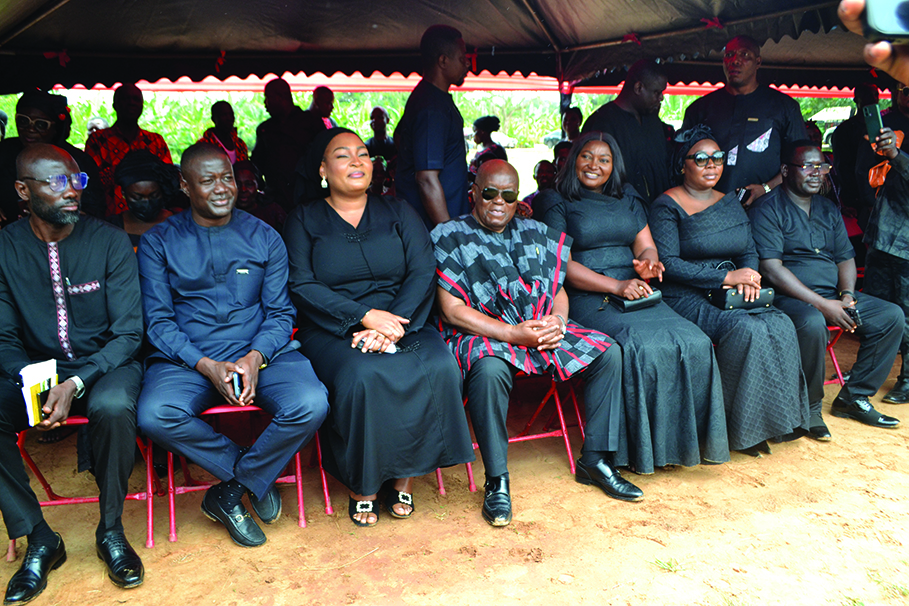
Across the world, nations rise or fall on the strength of their youth. In Ghana, we are blessed with a vibrant, energetic, and ambitious generation. They are digitally savvy, creative, and resilient, navigating challenges with remarkable ingenuity. Yet, despite this promise, we are failing them.
Our education system struggles to prepare them for the complexities of the modern world, job opportunities remain scarce, and structures for mentorship and guidance are weak. The youth bulge—a demographic phenomenon where a large proportion of the population is under 35—can either be our greatest advantage or our most dangerous liability. The choice rests with us.
Education: The Broken Foundation
Education ought to be the bedrock of development, yet too often it is treated as an afterthought. Reports consistently highlight that many young people leave school without the necessary literacy, numeracy, or critical thinking skills to thrive in today’s global economy.
The World Bank notes that more than half of children in low- and middle-income countries suffer from “learning poverty”—they cannot read and understand a simple text by age 10. In Ghana, despite impressive enrolment numbers at the basic level, quality remains a pressing concern. Overcrowded classrooms, underpaid teachers, and outdated curricula mean students often memorise rather than learn.
The Free Senior High School (SHS) programme, introduced in 2017, has opened the doors of education wider than ever before. Over1.3 million students are currently enrolled under the policy. Yet the influx has stretched infrastructure and teaching resources to the limit. In many schools, class sizes exceed 70 students per teacher. While access has expanded, quality risks being compromised.
Technical and vocational education, which could bridge the gap between learning and earning, remains undervalued. Too many young people pursue degrees that lead to limited job prospects while industries cry out for skilled artisans, engineers, and technicians. A cultural reorientation is needed—one that values vocational training as much as academic pathways.
We must invest in education that prioritises skills, creativity, and problem-solving over rote learning. Finland, often cited as a global leader, places emphasis on critical thinking and teacher empowerment. Closer to home, Rwanda has invested heavily in STEM education and ICT training, aligning its curricula with national development goals. Ghana must take similar bold steps if its young people are to thrive.
Jobs: Dreams Deferred
The transition from school to work is fraught with obstacles. The Ghana Statistical Service (GSS) 2023 report reveals that nearly 20% of youth are unemployed, with underemployment even more widespread. Many of those who are employed work in precarious, low-paying, or informal jobs that do not match their skills or aspirations.
Agriculture remains the largest employer, yet it is viewed by many young people as unattractive—associated with drudgery, low returns, and limited innovation. Meanwhile, cities are choked with jobless graduates competing for a handful of white-collar opportunities. The mismatch between what schools produce and what the economy demands is glaring.
The consequences are sobering. A 2022 Afrobarometer survey revealed that more than 40% of Ghanaian youth would migrate if given the chance, citing unemployment and lack of opportunities. This “brain drain” is not merely aspirational; it is already happening, with skilled young people leaving for Europe, North America, and the Gulf. Left unchecked, this exodus could deprive Ghana of the very human capital needed for development.
The danger here is twofold. On one hand, we risk wasting the talents of an entire generation. On the other, we risk fuelling resentment and instability. History teaches us that when young people feel excluded and hopeless, they are more likely to turn to crime, radical movements, or emigration in search of opportunity.
To tackle this, Ghana needs bold investments in job creation. This means supporting entrepreneurship, strengthening small and medium enterprises (SMEs), and rebranding agriculture through technology and value addition. Countries such as Rwanda, with its thriving ICT hub, and Nigeria, with its booming fintech sector, demonstrate what is possible when governments, investors, and young innovators work together. Ghana, too, can find its niche in areas like agritech, renewable energy, and the digital economy.
Mentorship: Bridging the Generational Gap
Beyond education and jobs, mentorship remains one of the most undervalued yet critical needs of young people. Too often, the gap between generations is filled with mistrust. The older generation views the youth as inexperienced and impatient, while the young view their elders as out of touch and unwilling to let go of power.
Yet history shows that youth leadership has often been transformative. Kwame Nkrumah was only 41 when Ghana gained independence. Nelson Mandela began his activism as a young lawyer. More recently, Emmanuel Macron became President of France at 39, and Jacinda Ardern became Prime Minister of New Zealand at 37.
Mentorship is not about ceding control, but about guiding, empowering, and sharing wisdom. Structured mentorship programmes, internships, and leadership training initiatives can bridge the gap, helping the young to grow while benefiting from the experience of their elders.
There are encouraging signs in Ghana. Initiatives like Soronko Academy, founded by Regina Honu, are empowering girls and women with digital skills, while Farmerline, founded by Alloysius Attah, is transforming agriculture through mobile technology. These are youth-led solutions with global impact. They show what happens when young people are trusted and supported.
The Youth Bulge: Blessing or Time Bomb?
Africa has the youngest population in the world, with over 60% under the age of 25. In Ghana,57% of the population is below 25, according to the UN Population Fund (UNFPA). This demographic reality is both an opportunity and a risk.
If properly harnessed, the youth bulge can drive a demographic dividend, where a large working-age population boosts productivity, innovation, and growth. But if neglected, it becomes a ticking time bomb. The Arab Spring of 2011 was fuelled by youth discontent over unemployment and exclusion. Ghana cannot afford to ignore the lessons.
Beyond Government: A Shared Responsibility
It is tempting to look solely to government for solutions. But while government plays a critical role in policy, regulation, and investment, it cannot do it alone. The private sector must expand opportunities, not just chase profit. Religious bodies must go beyond sermons to create spaces for skills training and mentorship. Communities must support young entrepreneurs by patronising their services and celebrating their achievements.
The media also has a role: shifting focus from sensationalism to showcasing innovation, resilience, and youth-led solutions. Too often, the narrative around young people is one of laziness or delinquency. In reality, many are striving against the odds, building businesses, and leading change at local levels. Their stories deserve to be told.
Investing in Youth: From Rhetoric to Action
Empowering the youth requires more than token gestures or one-off programmes. It requires consistent, deliberate, and well-funded investment. This includes:
- Education Reform – modernising curricula, training teachers, and prioritising STEM and vocational skills.
- Job Creation – policies that encourage SMEs, entrepreneurship, agribusiness, and innovation hubs.
- Mentorship – institutionalised programmes linking youth with professionals.
- Youth Participation in Leadership – not just as “future leaders” but as present decision-makers.
- Mental Health Support – recognising the psychological pressures of unemployment and social exclusion.
Singapore’s transformation offers lessons. Within a generation, it moved from poverty to prosperity by investing in education, skills, and industry alignment. Ghana and Africa can do the same if we choose action over apathy.
Conclusion: Trust the Young, Secure the Future
Our youth are not a problem to be managed, but a resource to be empowered. They are not just leaders of tomorrow—they are leaders of today. Failing them is not an option.
If we provide the tools, trust, and opportunities, they will repay the investment many times over—with creativity, productivity, and leadership. If we do not, we risk not only their future, but the very stability and prosperity of our nation.
The clock is ticking. The youth bulge is here. Whether it becomes our greatest blessing or our gravest crisis depends on the choices we make—today.
The post Reflections by S.M.A: Failing Forward: Why we must invest in our youth now appeared first on The Business & Financial Times.
Read Full Story













Facebook
Twitter
Pinterest
Instagram
Google+
YouTube
LinkedIn
RSS